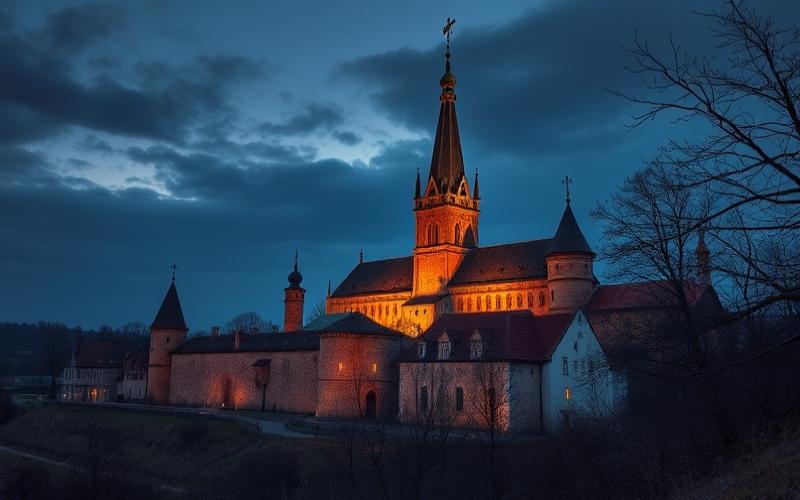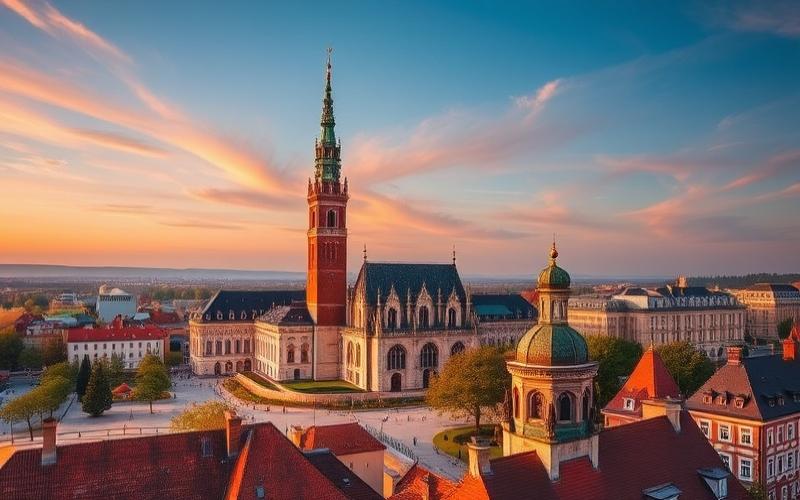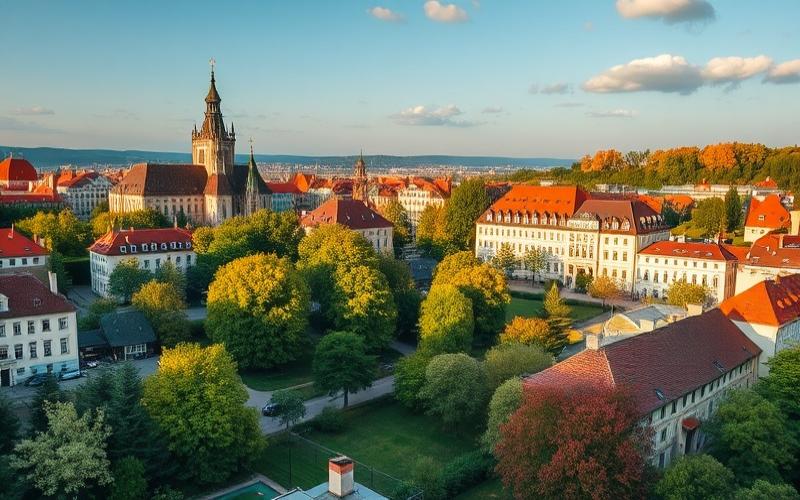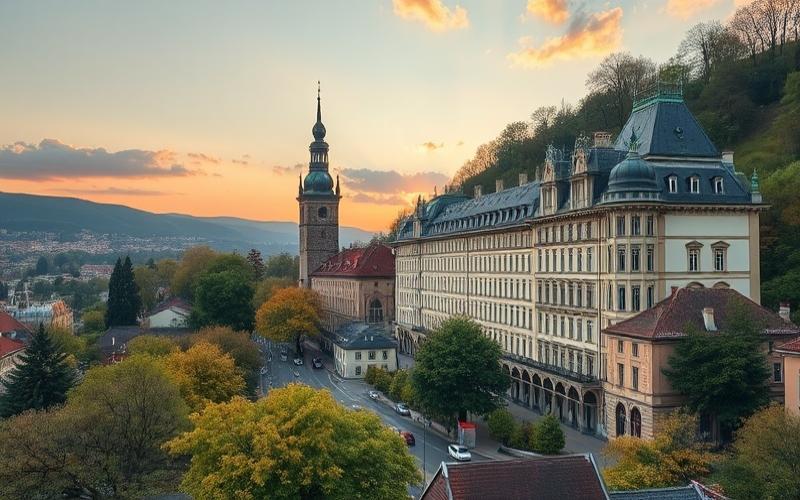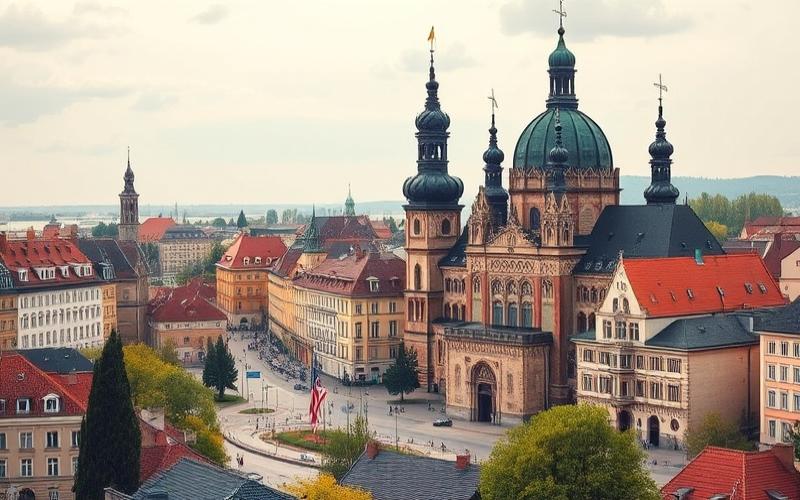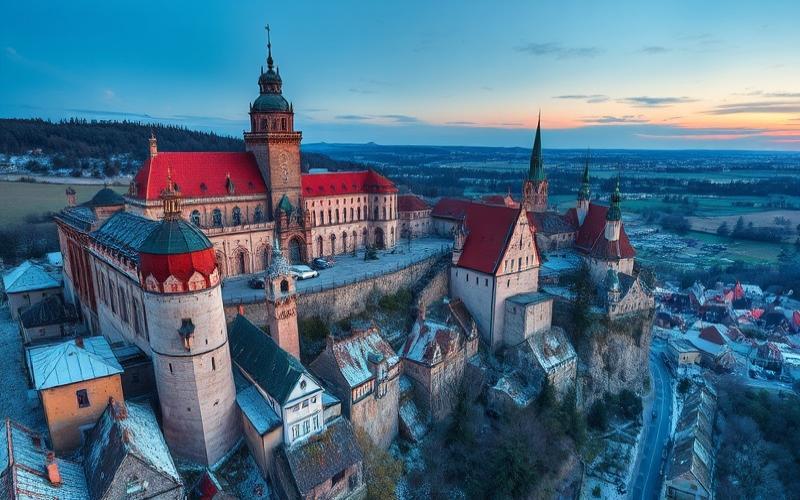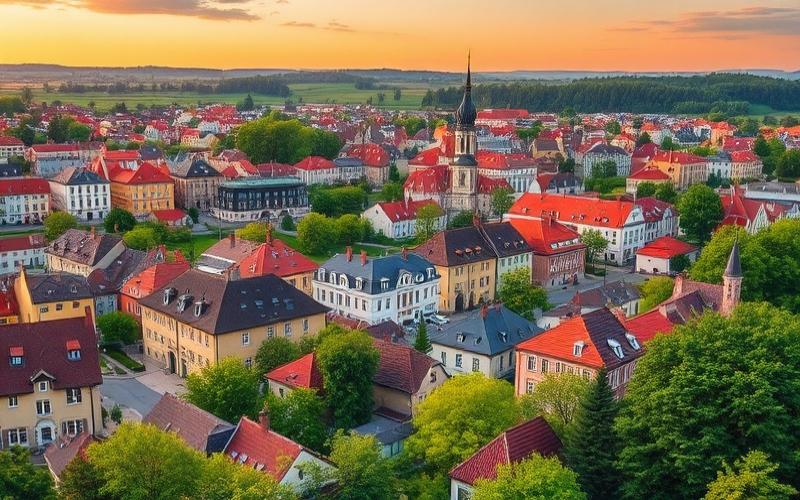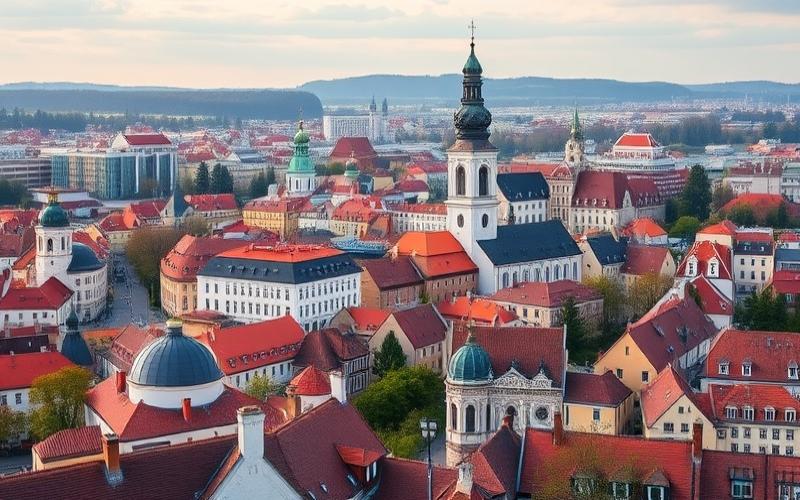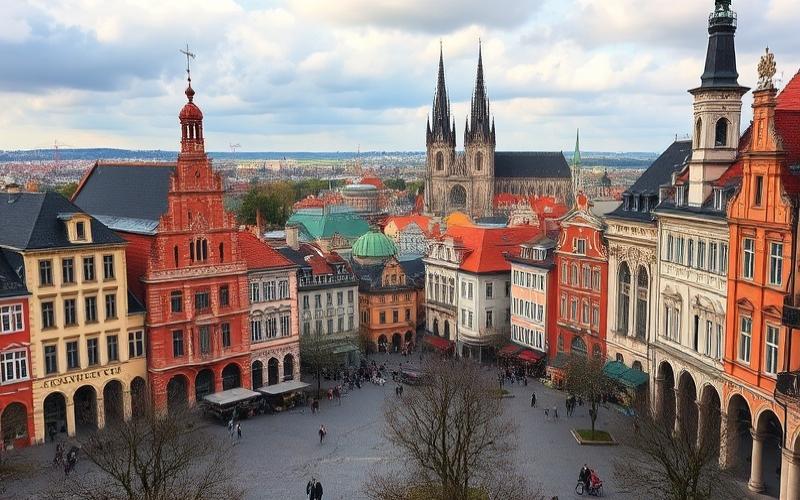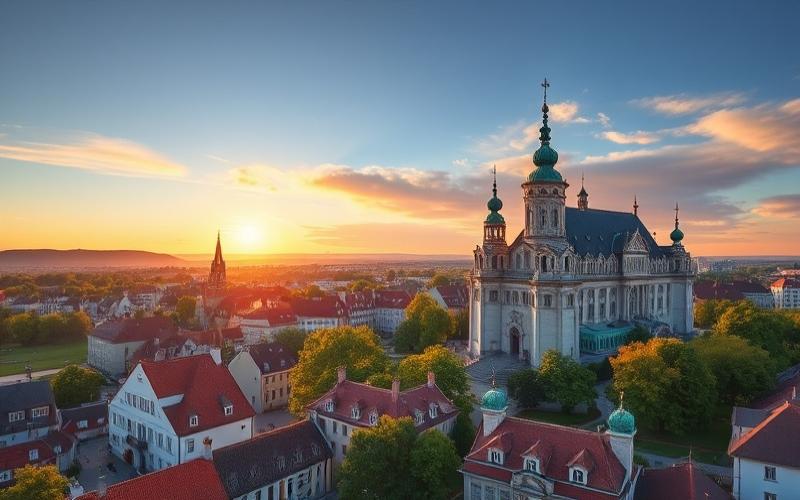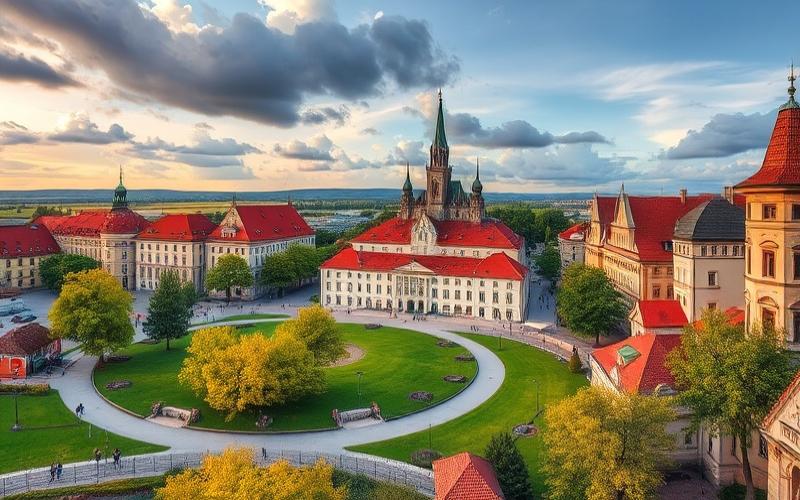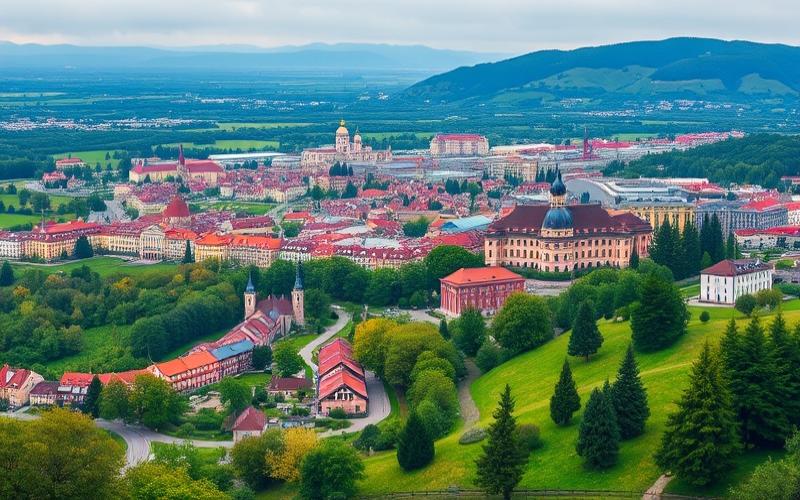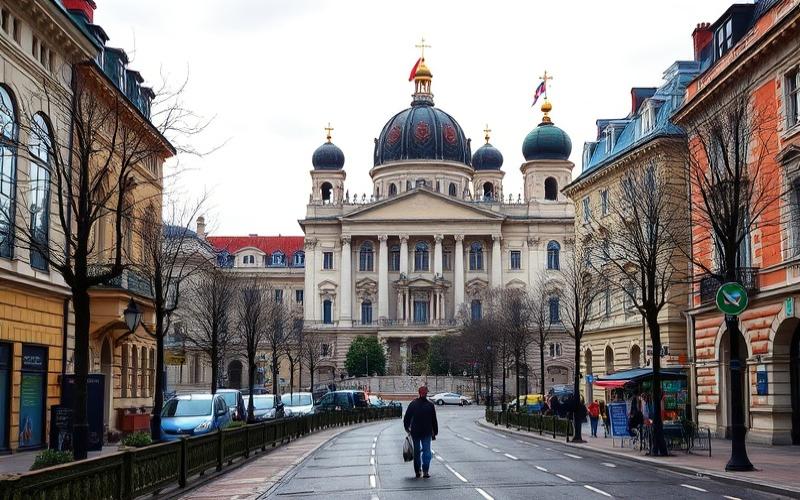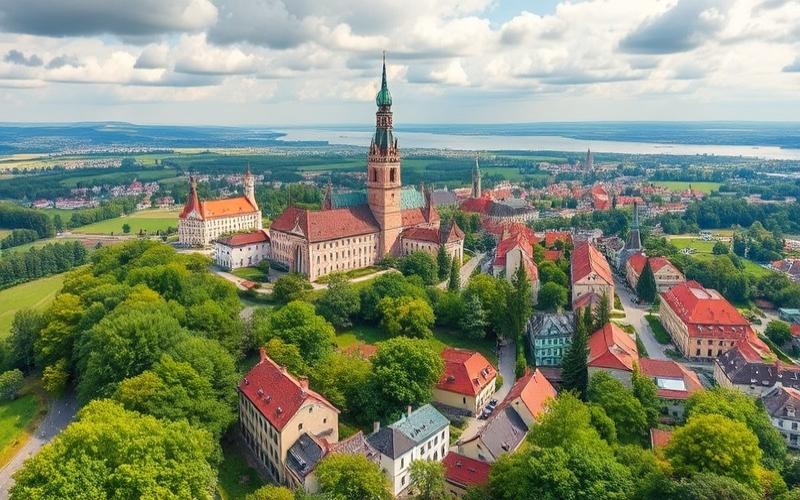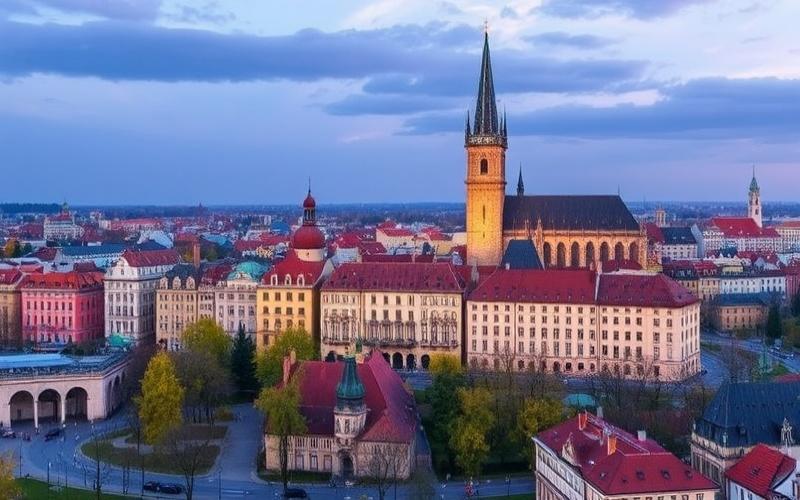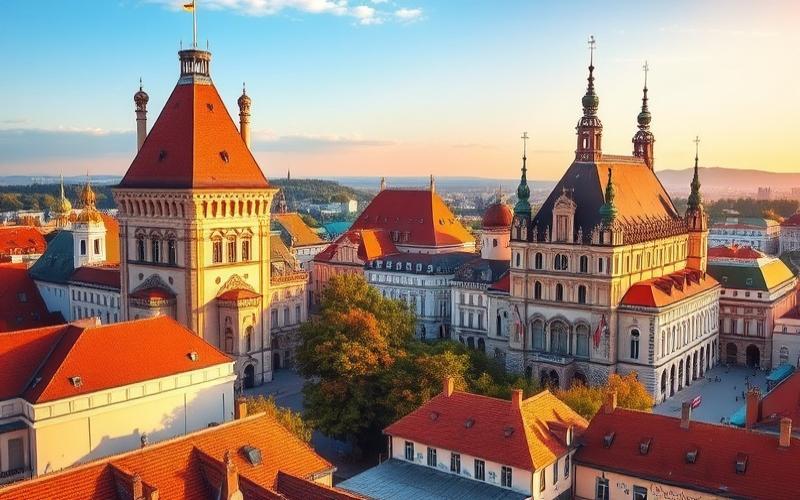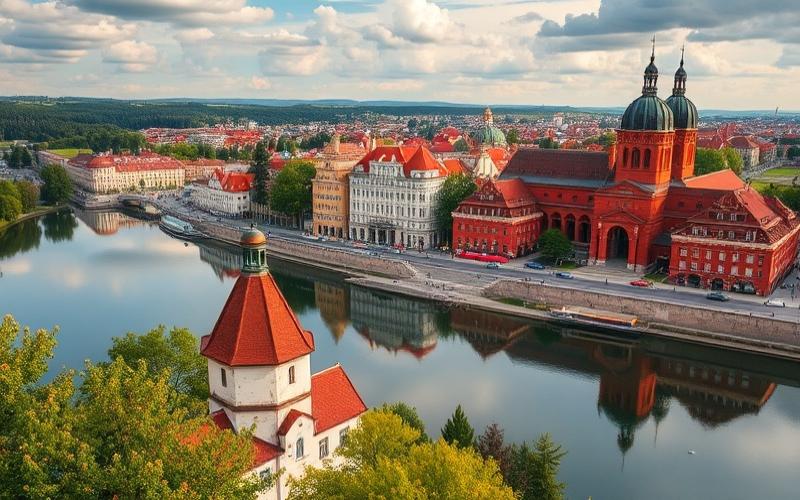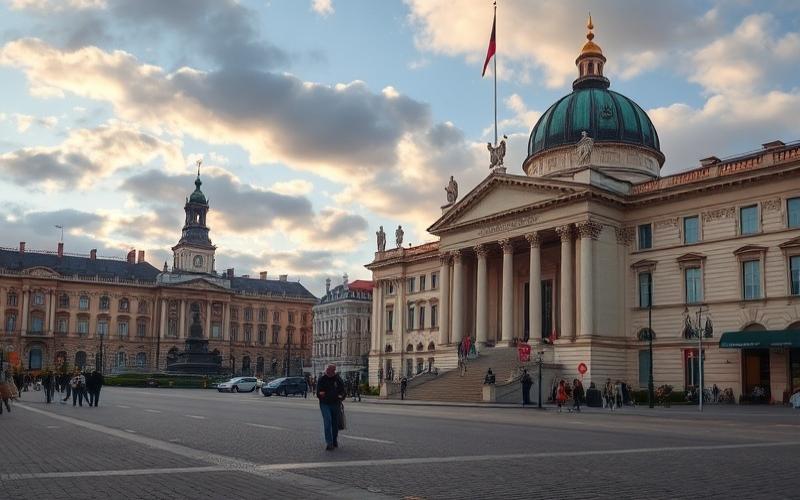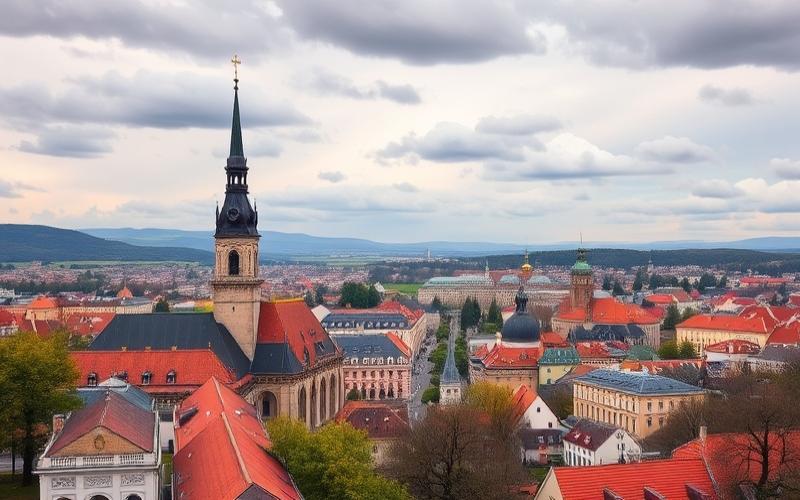
 Published on and written by Cyril Jarnias
Published on and written by Cyril Jarnias
Polish Real Estate: The Rise of Co-Living Spaces
The Polish real estate market is undergoing a significant transformation with the rise of co-living spaces, an innovative trend that’s attracting more and more young professionals and students.
This collective housing model, which offers a clever blend of privacy and community, is gaining ground in major cities like Warsaw and Krakow, meeting growing demand for flexibility and social connection.
As property prices continue to climb, these shared spaces provide an affordable alternative while promoting a more sustainable lifestyle.
By exploring the reasons behind this enthusiasm and the multiple benefits they offer, this article reveals why co-living spaces could very well shape the future of the Polish real estate market.
Good to Know:
Co-living spaces combine private areas with common zones (kitchens, lounges, gyms), reducing costs while fostering social interactions.
Reasons Behind the Rise of Co-Living Spaces in Poland
Economic Factors Driving Co-Living Spaces in Poland:
- Rising Urban Property Prices:
- In Warsaw, the average price per square meter reaches €2,200, significantly lower than Berlin or Paris but showing strong growth in recent years. This increase makes property ownership difficult for young professionals and new entrants to the job market.
- Saturation and Pressure on the Traditional Rental Market:
- The housing saturation rate remains below the European average (420 homes per 1,000 inhabitants compared to the EU average of 514), creating increased pressure on the rental market.
- Relative Salaries of Young Professionals:
- Salaries for recent graduates are growing more slowly than traditional acquisition or rental costs in major Polish cities, strengthening demand for flexible and affordable solutions.
| City | Average Price per m² (€) | Comparison with Europe |
|---|---|---|
| Warsaw | ~2,200 | Lower than Berlin/Paris |
| Berlin | >5,000 | — |
| Paris | >11,000 | — |
Social and Cultural Reasons:
- Evolving Lifestyles Among Young Adults:
- Growing preference for flexible lifestyles, less tied to property ownership, driven by professional and personal mobility.
- Desire for community experiences, centered around shared spaces (collective kitchens, collaborative lounges).
- Growing Popularity Among Digital Nomads and Remote Workers:
- Co-living spaces meet the specific expectations of nomadic workers seeking community, informal professional networks, and cultural exchange.
- Growing interest is evident among both Poles and international populations attracted by Poland’s urban dynamism.
- Search for balance between privacy (private rooms) and social connection (shared spaces)
- Desire to avoid social isolation
- Increasing cultural influence from Western European models
European Influence & Internationalization of the Co-Living Model:
Inspiration comes mainly from:
- Practices observed in cities like London or Amsterdam where co-living is already established
- International platforms that promote these models as modern urban solutions
Technological Impact:
Digital advancements have played a key role:
- Specialized platforms facilitating search, booking & fully digital rental management
- Smart home solutions integrating intelligent security & centralized energy management
- Dedicated community applications enabling organization of internal events or instant communication between residents
- Mobile apps for instant booking
- Paperless digital contract management
- Spaces equipped with secure high-speed wifi & digital access to facilities
Recent Concrete Examples in Poland:
| Name / Location | Main Characteristics |
|---|---|
| Cluster Offices – Krakow | Premium spaces combining high-end coworking & customized residential areas |
| beIN Central Point – Warsaw | Integrated coworking-co-living offer with hotel services |
| The Shire – Beyond Coworking – Wilanów (Warsaw) | Hybrid space blending boutique hotel accommodation & innovative collaborative venues |
Key Takeaways:
The rapid growth of Polish co-living is explained by a unique combination: increased economic pressures on traditional housing, sociocultural evolution toward more collective flexibility among urban younger generations, and a technological environment conducive to collaborative residential innovation.
Good to Know:
The rise of co-living spaces in Poland is mainly driven by several economic, social, and technological factors. The notable increase in property prices has pushed many young professionals to seek more affordable housing solutions, while their salaries stagnate and struggle to keep up with inflation. Additionally, evolving lifestyles are fueling growing interest in shared living spaces, inspired by popular co-living models in other European countries. The rapid development of digital platforms simplifies renting and managing these spaces, encouraging their large-scale adoption. For example, initiatives like “LifeX” and “CameHome” offer well-established co-living communities in Warsaw, meeting the mobility and socialization needs of new generations. These examples illustrate how co-living culture helps solve financial challenges while strengthening community bonds among urban young adults.
Premium shared housing is establishing itself as a new standard in urban living in Poland, driven by growing demand from young professionals and expatriates seeking comfort, services, and flexibility.
| Elements | Description |
|---|---|
| Interior Design | Quality finishes, designer furniture, artwork, contemporary and refined decoration |
| Modern Equipment | High-speed internet, latest appliances, air conditioning, smart home technology |
| Shared Spaces | Integrated coworking, common lounges, terraces, equipped kitchens, gyms |
| Included Services | Concierge, cleaning, maintenance, laundry, fitness memberships, social events |
| Security and Privacy | Secure access, cameras, digital access management |
| Prime Locations | Proximity to urban centers, universities, public transportation, and vibrant neighborhoods |
New Urban Lifestyle Trends:
- These spaces reflect evolving expectations: search for flexibility, community integration, and premium living environments.
- Residents benefit from the balance between private life (individual rooms) and collective living (common spaces, shared activities).
- Focus on well-being, productivity (coworking spaces) and access to international networks, particularly appreciated by young professionals and expatriates.
- The offering targets a mobile clientele seeking to settle without administrative or logistical constraints.
Role of Developers and Specialized Companies:
- Real estate developers and co-living operators play a driving role in professionalizing and upgrading shared housing.
- They invest in building renovations, designing stylish spaces, and developing customized services, transforming the traditional image of shared housing.
- These players ensure rental management, customer service, and community building (organizing events, activities, etc.).
Concrete Examples of Projects and Initiatives:
- In Warsaw and Krakow, several private residences offer premium furnished rooms with coworking spaces, gyms, and included services.
- Platforms like Pepe Housing or Erasmus Play list premium individual room offers, often located in central and lively neighborhoods.
- Some companies, such as COOLOC, develop co-living concepts integrating design, technology, and services to attract demanding international clients.
- Comfort and Peace of Mind thanks to included services and quality amenities.
- Social Integration facilitated by community living and organized activities.
- Flexibility of contracts, adapted to resident mobility.
- Strategic Location providing quick access to employment hubs, entertainment, and educational institutions.
Specific Challenges in the Polish Context:
- Higher cost compared to standard shared housing, which may limit accessibility for some demographics.
- Managing cultural diversity and varied expectations of international residents.
- Adapting offerings to regulatory specifics and the local market, which is still structuring itself.
Premium shared housing in Poland thus embodies an innovative response to urban lifestyle evolution, while presenting new challenges in terms of accessibility, community management, and sustainability.
Good to Know:
In Poland, premium shared housing is becoming an increasingly popular standard, particularly in major cities like Warsaw and Krakow, where modern complexes offer not only state-of-the-art amenities such as gyms, pools, and coworking spaces, but also practical services like cleaning and 24/7 security. This trend meets the needs of young professionals and expatriates seeking chic and flexible accommodation solutions, often located in dynamic and well-connected neighborhoods. Specialized companies like Vonder and Zoku, for example, play a key role by offering innovative projects that combine contemporary design and community spirit. The challenge for these spaces lies in maintaining a balance between luxury comfort and financial accessibility, while complying with local regulations.
Shared spaces and digital communities are redefining lifestyles in Poland, particularly through the rapid development of co-living spaces. These places combine private housing with common areas, fostering social interconnection, cost sharing, and the emergence of dynamic professional networks.
Impact of Digital Technologies on Co-Living Communities
- Digital platforms for management: booking, payment, internal communication via mobile apps or web portals.
- Collaborative tools facilitating organization of community events or logistical management (cleaning schedules, equipment sharing).
- Spaces equipped with high-speed connections and smart home technology to optimize comfort and security.
| Advantage | Description |
|---|---|
| Social Interconnection | Promotes multicultural exchanges, lasting friendships; reduces feelings of isolation |
| Cost Reduction | Rent 30% cheaper than traditional housing; utilities included (Wi-Fi, cleaning) |
| Professional Opportunities | Networking facilitated by presence of freelancers/entrepreneurs; dedicated events |
| Flexibility | Variable lease terms adapted to students/digital nomads |
Notable Examples of Co-Living Spaces in Poland
- beIN Central Point in Warsaw: premium space where smart technology meets boutique comfort.
- Cluster Offices in Krakow: hybrid coworking/co-living model focused on personalized services.
- The Shire – Beyond Coworking (Warsaw Wilanów): blends hotel design with digital innovation for a high-end community experience.
List of other popular addresses:
- Mapmelon Colivings (Warsaw)
- Chill Inn Coliving (Krakow)
- Urban Spaces Community House
Testimonials Illustrating Social/Cultural Impact
“I found not only affordable housing but also a community that helped me launch my independent business.”
— Marta K., Cluster Offices resident
“The cultural diversity of the place allowed me to learn something new every day. The digital tools make everything simple—we organize our shared meals through a common app.”
— Alex D., beIN Central Point
Key benefits reported by residents:
- Increased sense of belonging
- Easier access to local job market through networking
- Accelerated discovery of Polish culture through regular community events
The rise of digitized co-living is thus transforming the Polish urban landscape by offering a balance between flexible private life and collective dynamism.
Good to Know:
In Poland, co-living spaces are revolutionizing the residential landscape by integrating digital technologies that simplify management and communication within these communities. These shared spaces offer notable benefits, such as social interconnection, reduced housing costs, and professional networking opportunities, thus attracting many young professionals and digital nomads. A successful example is Be Co Living spaces in Warsaw, where applications facilitate organization of community events and management of shared services. Residents emphasize how much this collective living enriches their daily lives both socially and culturally, enabling them to establish lasting personal and professional connections.
Disclaimer: The information provided on this website is for informational purposes only and does not constitute financial, legal, or professional advice. We encourage you to consult qualified experts before making any investment, real estate, or expatriation decisions. Although we strive to maintain up-to-date and accurate information, we do not guarantee the completeness, accuracy, or timeliness of the proposed content. As investment and expatriation involve risks, we disclaim any liability for potential losses or damages arising from the use of this site. Your use of this site confirms your acceptance of these terms and your understanding of the associated risks.




